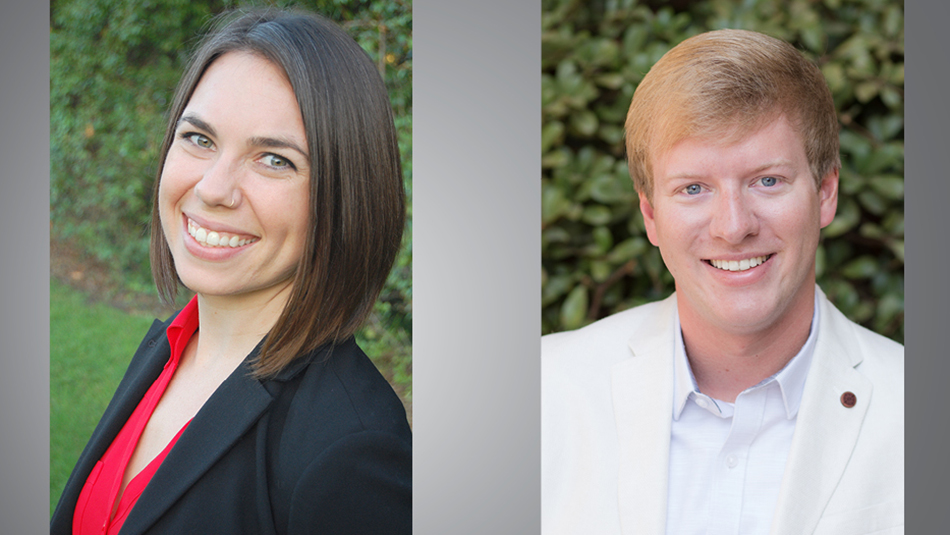
Award goes to Ph.D. students studying criminology, law and society.
Dallas Augustine and Rylan Simpson have been selected for the Dickman Award for Dissertation Research, which is given annually to help doctoral students in criminology, law and society do research in the field.
Augustine, who plans to graduate in 2020, studies work requirements for people on parole, including the experience of being coerced to work under the looming threat of reincarceration. Rylan Simpson, who expects to graduate in 2019, studies how appearance affects citizens’ perceptions of police officers.
Augustine’s volunteer work as a reentry advisor for prisoners at San Quentin State Prison launched her interest in the topic of post-incarceration employment. She interviewed people with criminal records who felt coerced into working jobs that were, at times, exploitative, with wage violations and dangerous conditions -- people who feared violating parole or probation.
“My goal is to improve the process of acquiring meaningful work after incarceration, which benefits both the individual and society at large,” Augustine says. “This is a crucial piece in that larger agenda.”
For various research projects, Augustine has conducted in-depth interviews with people with felony records immediately after their release from jail and in-depth surveys of people in long-term solitary confinement in Washington State.
Paired with a National Science Foundation grant, the Dickman scholarship will allow Augustine to do 40 in-depth qualitative interviews with parolees in Los Angeles County, along with an online survey of L.A. County parolees.
Augustine is also on the board of directors for the Orange County Needle Exchange Program.
Simpson is studying how changing officers’ appearance, via their attire, vehicles and facial expressions, can impact perceptions of them. He has long been interested in policing, and has spent more than 600 hours riding along with officers on patrol both in California and internationally.
"Observing police practices, and learning about officers’ trials, tribulations and revelations, has fueled my curiosity and interest in empirically studying the police," Simpson says.
His research has been collaborative, as he’s met and worked extensively with police practitioners, and he’s keen on making sure his academically rigorous research can be used to inform policing practices.
The Dickman award will allow him to test the scope and reach of his findings among a new and diverse sample of participants.